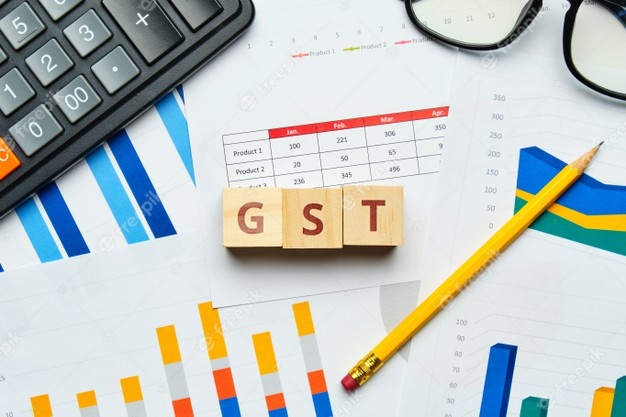Cryptocurrency Trading & The Obligation to Collect GST/HST
The Canada Revenue Agency (CRA) treats Bitcoinand cryptocurrencies in generalas a commodity for tax purposes. As a result, the CRA will subject a cryptocurrency transaction in Canada to the same rules that it would apply to a barter transaction.
This generally means that profits from a cryptocurrency transaction will be treated as either (i) business revenue or (ii) a capital gain. If your profits are characterized as business revenue, you may have an obligation to collect and remit GST/HST.
In particular, a Canadian business earning more than $30,000 in worldwide revenues may have an obligation to collect GST/HST. Under subsections 165(1) and (2) of the Excise Tax Act (“ETA”), GST/HST is imposed on “every recipient of a taxable supply made in Canada” A “taxable supply” captures most business transactions (ETA, s. 123(1)). And although GST/HST is levied on the recipient of a taxable supply, the person who makes the supply bears the obligation to actually collect the tax (ETA, s. 221(1)).
So, a cryptocurrency trader may need to collect and remit GST/HST on the revenue from crypto-currency transactions. Some business transactions, however, are exempt from GST/HST. A financial-services business, for example, need not collect GST/HST.
This examines whether a crypto-currency-trading business is an exempt financial-services business on the basis that crypto-currency meets the Excise Tax Act’s definition of “money.” To that end, this article looks at both Canadian jurisprudence on the notion of “money” and the Excise Tax Act’s exempt-supply regime for financial services. This analysis suggests that a crypto-currency-trading business does not attract GST/HST liability.
Financial Services: Exempt from GST/HST
A supply of financial services is exempt from GST/HST. A “financial service” includes “the exchange, payment, issue, receipt or transfer of money.” The Excise Tax Act’s definition of “money” appears at subsection 123(1):
“money” includes any currency, cheque, promissory note, letter of credit, draft, traveller’s cheque, bill of exchange, postal note, money order, postal remittance and other similar instrument, whether Canadian or foreign, but does not include [collectors’ money];
In 2013, the Canada Revenue Agency released a publication suggesting that cryptocurrency does not meet the ETA’s definition of “money.” The CRA insists that cryptocurrency is a commodity and crypto-currency transactions are barter transactions. Since a barter transaction is by definition an exchange without using money, the CRA’s position implies that cryptocurrency fails to comprise “money” under the Excise Tax Act.
Cryptocurrency & the Excise Tax Act’s Definition of “Money”: A Textual, Contextual, and Purposive Analysis
When interpreting legislation—such as the provisions of Canada’s Excise Tax Act—courts examine its text, context, and purpose to find a meaning that is harmonious with the entire Act of which the legislation is a part. And a textual, contextual, and purposive interpretation suggests that cryptocurrency likely qualifies as “money” under the ETA.
First, the definition is not exhaustive. It “includes” not only currency but also promissory notes, letters of credit, bills of exchange, and money orders. This illustrates that “money” need not be legal tender issued by a country.
Second, Canadian law has long reflected this interpretation of the term “money.”In particular, Canada has adopted the English judicial definition of money as:
that which passes freely from hand to hand throughout the community in final discharge of debts and full payment of commodities, being accepted equally without reference to the character or credit of the person who offers it and without the intention of the person who receives it to consume it or apply it to any other use than in turn to tender it to others in discharge of debts or payment for commodities. (Moss v Hancock, [1899] 2 QB 111, at 116.)
This sentiment was affirmed by the Supreme Court of Canada:
[M]oney as commonly understood is not necessarily legal tender. Any medium which by practice fulfils the function of money and which everybody will accept in payment of a debt is money in the ordinary sense of the words even although it may not be legal tender. (Reference re Alberta Statutes—The Bank Taxation Act; The Credit of Alberta Regulation Act; and the Accurate News and Information Act, [1938] SCR 100, at 116.)
In the context of Canada’s jurisprudence, which accepts that money is any medium of payment that everyone will accept in payment of a debt, the Excise Tax Act’s broad, inclusive definition of “money” suggests that cryptocurrency should qualify.
Shifting conventions reinforce the view that cryptocurrency falls within the ordinary meaning of “money.” Starting in April 2019, the Ontario town of Innisfil will accept Bitcoin as payment for property taxes. Residents of Innisfil may use Bitcoin to pay their property tax through the exchange Coinberry Pay. Coinberry Pay will convert the Bitcoin to Canadian dollars and transfer the funds to the town.
The policy purpose underlying the ETA’s exemption on financial services adds further support to this view. The Department of Finance’s 1987 white paper on salestax reform explained that “a multi-stage tax is a tax on consumption and not on savings.” Pure money-exchange transactions are not taxed because it is unclear how value is added to money along a supply chain. A value-added supply of goods involves the use of labour or capital to improve or transform the goods. But a dollar is worth a dollar—regardless of the labour or capital that you apply. Like money, cryptocurrency does not see an increase in value through the use of labour or capital. So, if a cryptocurrency exchange were subject to GST/HST, then the exchange user would incur an additional layer of taxation. An individual who, say, exchanges US dollars for Canadian dollars to purchase a television pays GST/HST on only one transaction: the television purchase. Yet an individual who exchanges cryptocurrency for Canadian dollars to purchase a television would incur two layers of GST/HST: once when converting the currency and once when purchasing the good. In other words, the second individual incurs GST/HST not only on consumption but also on savings. So, imposing GST/HST obligations on a cryptocurrencytrading business would seemingly undermine the policy underlying a consumption tax.
In summary, a textual, contextual, and purposive interpretation suggests that cryptocurrency might meet the definition of “money” under the Excise Tax Act. If so, then—contrary to the CRA’s position—a cryptocurrency-trading business should be an exempt financialservice business.
Tax Tips: CRA Audit Representation, Unreported Cryptocurrency Revenues &Other Cryptocurrency taxation
As mentioned, the Canada Revenue Agency may not share the view that a cryptocurrencytrading business is a financial service and thus exempt from GST/HST. Moreover, the CRA recently started its audit program involving Canadian cryptocurrency investors.
Our experienced tax accountantscan help you prepare for a CRA tax audit of your cryptocurrency transactions. We can advise you on your rights and ensure that the information you provide to CRA is both accurate and relevant. The Canada Revenue Agency’s cryptocurrency audits also signal an end to the fiscal anonymity offered by using cryptocurrency, such as Bitcoin, Ethereum, Ripple, Bitcoin Cash, and Litecoin. This should definitely concern Canadian taxpayers with unreported income from cryptocurrency transactions.
Should you require further guidance/assistance, please contact us by email at [email protected].
The content of this blog/article is intended to provide a general guide to the subject matter. Specialist advice should be sought about your specific circumstances. Our firm does not offer FREE initial consultation related to Crypto matters and charges on an hourly basis ($225 per hour plus HST).



